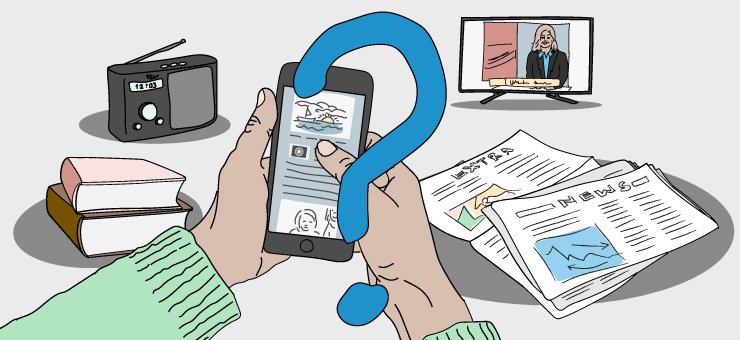It's important to evaluate the sources of information
Last updated: 2/2-2023
Is everything true that we hear, see and read about on the internet, in the newspapers, on television, or the radio? How do we know we can trust the source of a particular item of news or information? And what does it actually mean to evaluate the source?

Everyone has the right to participate in the governing of their country, either directly or by electing their representatives in free and fair elections.
You are also entitled to freedom of opinion and expression. This means that you are free to have the views and think the thoughts you wish. You can also spread your ideas and thoughts to others, such as via social media. But you are not allowed to use your freedom of expression to spread hate and slander about other people and groups. You also have the right to organise and take part in peaceful gatherings, protest marches and associations. But you are also entitled not to participate in gatherings or protest marches, and not to be a member of any association.
A source is something or someone from where we get information or facts. We receive information all the time, in many different ways. We read the papers, listen to the radio, watch TV and read, see or hear things on social media. Information also spreads from person to person – between friends, for example.
The information we get is never neutral. Stories and images may be convincing and exciting, but we always have to consider whether the information we are getting and passing on is correct or not. In other words, it is important that we evaluate the sources of the information we read, hear, or receive in some other way.
You can ask yourself these questions in order to find out whether the information is correct or incorrect:
- Where does the information come from originally? A government agency, a company, an organisation, or a researcher? Can you find the original source?
- Why is the information being transmitted? Is it to inform, to advertise, to make money, or to persuade people to agree with whatever it says?
- How old is the information? Is it still relevant? Is it an old news item, for example?
- How did you get the information? Is it from a source you can trust, one that has provided correct information in the past?
- Can you find the same information from other sources? Be careful about information you can only find from one source. Always try to get the facts from two sources that are independent of each other.
Have you received any information about how things work in Sweden which then proved to be inaccurate?
How can you find out which of the information you get is actually accurate?



